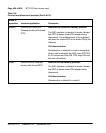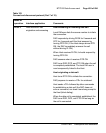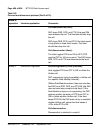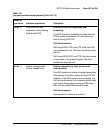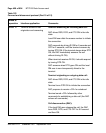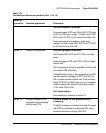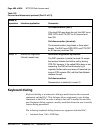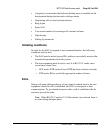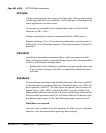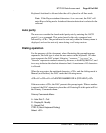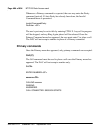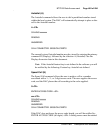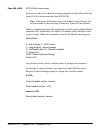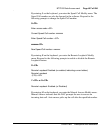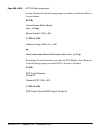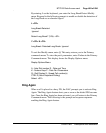
Page 462 of 894 NT7D16 Data Access card
553-3001-211 Standard 2.00 September 2004
Prompts
Call processing prompts are in upper case letters only. Other prompts consist
of both upper and lower case characters, and the dialogue session depicts the
actual upper/lower case letters used.
All prompts are preceded by the Carriage Return and Line Feed ASCII
characters (<CR>, <LF>).
Prompts requesting user input are terminated with the ASCII colon (:).
Prompts requiring a Yes or No answer are terminated by a question mark (?),
followed by a list of allowable responses. The default response, if allowed, is
bracketed.
Call abort
In addition to the methods mentioned above, which are common to both
Hayes and keyboard modes, keyboard dialing supports the following method
to abort a call during the dialogue phase.
• Sending the Control Z character (simultaneously pressing the control and
Z keys) sends a message to the DAC to immediately abandon the data
call setup.
Autobaud
All user dialogue must begin with Autobaud detection. This allows the DAC
to determine the user equipment baud rate. During this phase, only <CR> will
be recognized by the DAC. All other entries are ignored, and no entries are
echoed. Once a valid <CR> is detected, the DAC responds with the New
Menu prompt at the baud rate detected. If a fixed rate has been determined by
the downloaded parameters, the DAC will look for that rate. If the rates agree,
the dialogue phase begins. If not, the following prompt is sent to the user:
Baud Rate xxxx expected
After receiving a number of invalid responses, the DAC reverts to autobaud
detection, since the terminal data speed may have changed.



